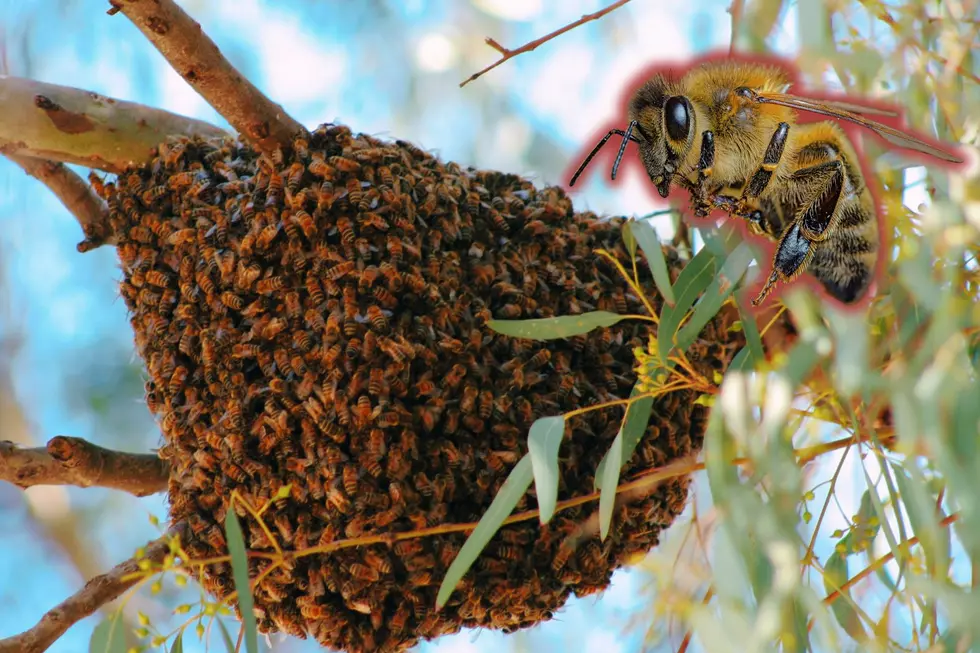
LOOK: Protect Your Loved Ones; ‘Kissing Bugs’ in Texas are Killing our Dogs
Well, it's not the Kissing Bugs themselves that are killing our pets in Texas. Rather, it's the deadly parasite they carry more than 50% of the time.
We recently came across a truly heart breaking post that we had to share with you. Every one with a pet in Tyler, Longview, Kilgore, Jacksonville, Lindale, and ALL around East Texas needs to be aware of this. I also highly recommend asking our vets if they've heard of an increased case level involving these parasites in East Texas.
Please read and then share with your friends so they can be on the lookout.
I gotta tell ya, I was rather hoping the feeling of apocalypse we've been dealing with for the last couple of years was starting to subside. But then you read stories like this...

Reading what this family has gone through broke my heart. THREE fur babies over the course of three months? How terrible. And also alarming? The fact that her vet asked if they were from the New Braunfels area.
It's a real problem there. And New Braunfels isn't too terribly far away from us here in ETX.
So what is this 'kissing bug' of which she speaks that are such a concern in New Braunfels, Texas?
Thankfully, Texas A&M University has a team that has been specifically studying these bugs. Because as you read in the post above, once a dog ingests or is bitten by one of these, they can die very quickly if it isn't treated. I say "bitten" but a more proper term by be "fed upon."
Horrifyingly, Kissing Bugs thrive on blood.
But it isn't actually the Kissing Bug that kills our dogs--it's the parasite they so often carry.
According to the A&M team website, the "parasite [is] called Trypanosoma cruzi [and] causes Chagas disease. Chagas disease can occur in people, dogs, and other mammals. The Trypanosoma cruzi parasite is sometimes called T. cruzi."
To keep things simple, let's call it the "Chagas Parasite."
How does the Chagas parasite transmitted via the Kissing Bug negatively affect your dog's health?
kissingbug.tamu.edu shares that "In dogs, infection with the Chagas Parasite can cause heart disease. But many infected dogs may be asymptomatic (not appear sick). A dog's daily stress and activity level along with age may affect how sick a dogs gets from Chagas disease.
Different types of the Chagas Parasite can also affect how sick a dog gets. Some common signs of illness in dogs are heart problems, stomach issues, and sometimes sudden death."
There is a test available for dogs, so ask your vet about it.
How can you protect your dog from Kissing Bugs and the Chagas Parasite starting right now?
Here's helpful info directly from the Texas A&M team working on this currently:
- Secure your house to keep kissing bugs from sneaking in. Plug any gaps around doors and baseboards, and fix any holes in window screens. Don't leave windows or doors open without screens.
- Keep the area under and around your house neat. Remove wild animal nests, piles of branches and wood, and trash so that wild animals stay away from your house. Wild animals can carry the parasite and also be blood sources for kissing bugs.
- Turn off outside lights at night if safe. Kissing bugs might fly towards lights and then crawl into a house. Keeping the lights off can keep the kissing bugs from coming near.
- Work with an extension agent or a pest control company to discuss integrated pest management (IPM) strategies. Information about pesticide options can be found in the Texas A&M's extension entomologist post HERE. If you use pesticides, be sure to read the label and apply only as the label says.
Please keep your fur babies safe. And again, please share with your friends.
Ten of the Best Restaurants with Patios in Tyler Where Dogs are Welcome!
LOOK: Here Are 30 Foods That Are Poisonous to Dogs
10 Actors Who Adopted Animals From Movie And Sets
More From 101.5 KNUE









